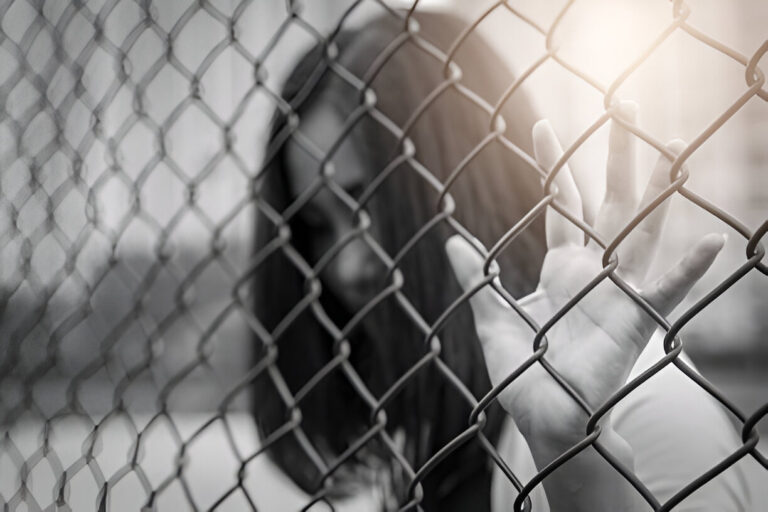Juvenile detention facilities are meant to provide rehabilitation and structure, yet they often fail to protect the most vulnerable minors. Youth with pre-existing challenges, such as mental health conditions, disabilities, or a history of trauma, face a higher risk of abuse in these settings. Understanding the unique vulnerabilities of these minors sheds light on why they are often targeted and what can be done to protect them.
The combination of power dynamics, isolation, and inadequate oversight creates an environment where abuse can thrive. Vulnerable minors, who may struggle to advocate for themselves or recognize abusive behavior, often become easy targets in such circumstances.
The Role of Power Imbalances in Abuse
Power imbalances between staff and minors in detention facilities contribute significantly to the risk of abuse. Vulnerable youth, particularly those with limited self-advocacy skills, may feel powerless to resist or report mistreatment. Abusive individuals can exploit this dynamic to assert control over minors, using threats, intimidation, or manipulation.
Facilities must implement safeguards to counteract these power imbalances. Transparent reporting systems, regular supervision of staff, and mandatory training in the ethical treatment of juveniles can help reduce opportunities for abuse. Empowering minors through education and advocacy programs also strengthens their ability to protect themselves.
Increased Risk for Minors with Disabilities
Minors with physical or intellectual disabilities are particularly susceptible to abuse in detention facilities. These individuals may have difficulty communicating their experiences, making it easier for abusers to target them without fear of being reported. Additionally, staff may lack proper training to recognize and meet the needs of disabled minors, leading to neglect or mistreatment.
To protect these minors, facilities must prioritize disability awareness training and ensure all staff understand how to interact respectfully and responsibly. Advocates and external oversight bodies can also play a role in safeguarding the rights of disabled youth within these institutions.
Impact of Trauma on Recognizing Abuse
Minors with a history of trauma often have difficulty identifying abusive behaviors, as their past experiences may normalize mistreatment. These juveniles may be more likely to accept abusive actions as part of their environment, failing to report incidents or seek help.
Addressing this vulnerability requires a trauma-informed approach within detention facilities. Staff should receive training to recognize trauma responses and provide support that fosters healing rather than perpetuating harm. Creating a supportive and understanding environment reduces the likelihood of further victimization.
Lack of Oversight and Accountability
Inadequate oversight within detention facilities significantly increases the risk of abuse, particularly for vulnerable minors. Poorly monitored staff and limited reporting mechanisms allow abusive behaviors to go unnoticed or unpunished. This lack of accountability creates a culture where vulnerable juveniles face heightened risks.
Regular facility inspections, independent audits, and confidential reporting systems are essential to improving oversight. Ensuring that staff adhere to strict standards of conduct and that complaints are thoroughly investigated can help protect at-risk minors and hold offenders accountable.
The Role of Isolation in Exacerbating Risk
Isolation is another factor that increases the likelihood of abuse for vulnerable minors. When juveniles are isolated from their peers, they have fewer opportunities to share their concerns or seek support. Abusive staff may use isolation as a tool to maintain control or silence complaints.
Facilities should limit the use of isolation as a disciplinary measure and ensure that all juveniles have access to supportive resources. Encouraging peer interactions, offering counseling services, and maintaining open communication channels create a safer and more inclusive environment.
Addressing Legal Protections for Vulnerable Minors
Legal protections are essential for safeguarding minors from abuse in detention facilities. Vulnerable juveniles and their families have the right to seek justice through legal channels, holding both abusers and negligent facilities accountable. Laws requiring strict oversight, transparent reporting, and thorough investigations help deter abuse and provide recourse for victims who suffer in silence.
Collaborating with a trusted juvenile facility abuse attorney in Illinois ensures that minors receive the protection and justice they deserve. These legal professionals advocate for victims, helping to expose systemic failures and enforce stronger safeguards. Their work not only supports individual cases but also fosters broader reforms to create safer, more supportive detention environments.
Cultural and Language Barriers That Increase Vulnerability
Minors from diverse cultural backgrounds or those who speak limited English often face additional risks in detention facilities. These juveniles may struggle to communicate their needs or report abuse, leaving them more vulnerable to mistreatment. Staff who are unfamiliar with their cultural norms or language may also misinterpret behaviors, leading to unfair punishments or neglect.
Facilities can address this issue by hiring multilingual staff and offering cultural competency training. Ensuring that every minor has access to interpreters and culturally sensitive resources creates an inclusive environment where all juveniles feel seen, heard, and protected.
Peer Aggression and Bullying in Detention Settings
Vulnerable minors in detention facilities are often targets of bullying or aggression from peers. This mistreatment can take the form of physical violence, verbal harassment, or social exclusion. Without proper supervision, these interactions can escalate and significantly impact the mental health and safety of the targeted individuals.
Staff must actively monitor peer interactions and intervene when signs of bullying or aggression arise. Providing conflict resolution programs and promoting positive peer relationships help create a safer environment. Facilities that foster mutual respect among juveniles reduce the likelihood of peer-driven abuse.
Barriers to Reporting Abuse for Vulnerable Minors
Vulnerable minors in detention facilities often face significant barriers when attempting to report abuse. Fear of retaliation, distrust of authority figures, and limited understanding of their rights can prevent them from seeking help. Additionally, some minors may feel that their complaints will not be taken seriously or that no action will be taken even if they report mistreatment.
To overcome these barriers, detention facilities must implement anonymous reporting systems and educate minors about their rights. Regularly reminding juveniles that they can report abuse without fear of punishment and ensuring complaints are thoroughly investigated encourages transparency and accountability. Providing trusted advocates or counselors further empowers minors to speak up and seek justice.

